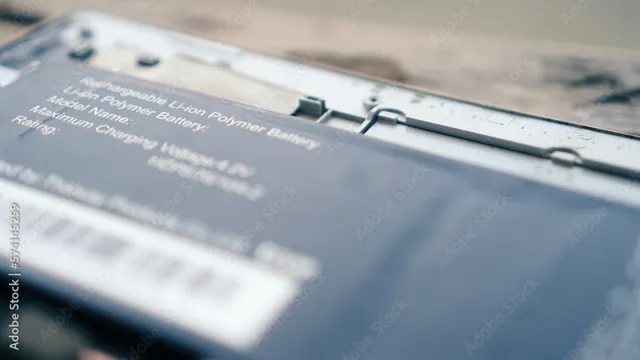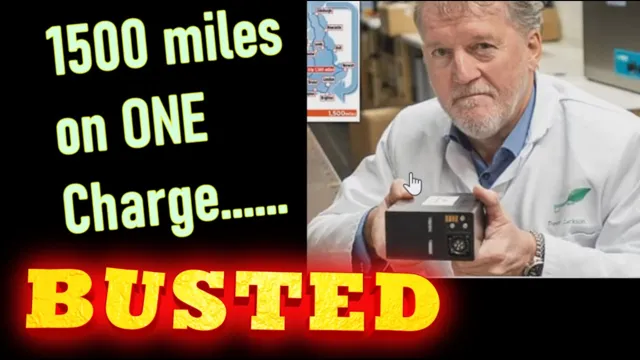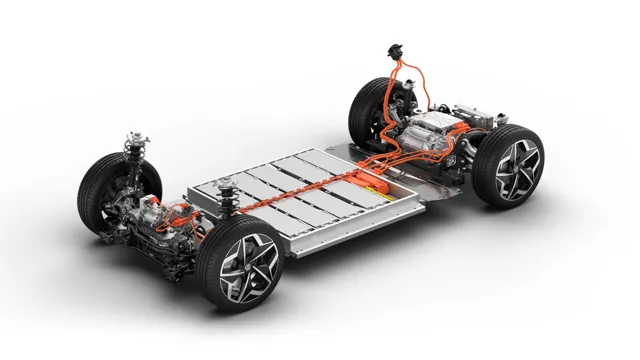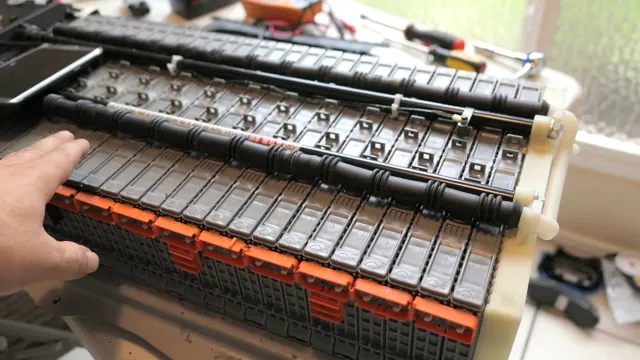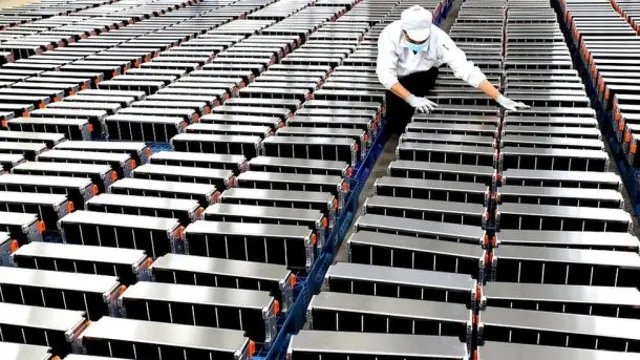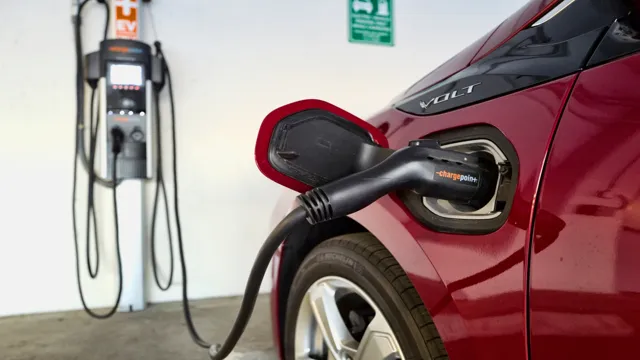10 Ways to Navigate the Current Electric Car Battery Shortage
Electric cars may soon take over the world, but there’s one hurdle that automakers are struggling to overcome – battery materials shortage. With the rise in demand for electric vehicles, the industry is facing a shortage of critical battery components such as lithium and cobalt. The shortage is a major threat to the transition to electric cars, which is expected to reduce greenhouse gas emissions and combat climate change.
A battery shortage could lead to production delays, price hikes, and potentially, slower adoption of electric vehicles. So, what’s causing the shortage, and what can automakers do to tackle the issue? Let’s dive in.
Current State of Electric Car Batteries
The current state of electric car batteries is facing a significant challenge, with an electric car battery shortage becoming a real issue. The increasing demand for electric vehicles is putting a strain on the supply chain of electric car batteries, resulting in longer waiting periods and higher prices. The shortage is caused by a lack of raw materials needed to produce batteries, such as lithium, cobalt, and nickel.
These metals are expensive and difficult to mine, causing a bottleneck in the production process. However, many companies are working on developing new battery technologies that will use alternative materials, such as sodium, to reduce the dependence on rare metals. Despite the current challenges, the electric car market is growing at a rapid rate, and advancements in battery technology will likely solve the shortage issue in the future.
Statistics on Battery Production
Electric Car Batteries The electric car industry has grown tremendously over the years, and the demand for electric cars is constantly increasing. Electric car batteries are the main components that power these vehicles. The current state of battery production leads to a significant reduction in the cost of producing batteries, making it more accessible for consumers.
Over the past few years, advancements in technology have made it possible to produce batteries with increased energy density, range, and lifetime. However, the production of electric car batteries still faces challenges such as the sourcing of raw materials, ethical concerns, and supply chain issues. Despite these challenges, producing electric car batteries is expected to continue growing at an exponential rate in the coming years.
Factors Contributing to the Shortage
As the popularity of electric cars continues to soar, the demand for their batteries is growing at a rapid pace. This, combined with the limited number of battery factories and materials needed to build them, is contributing to the current shortage of electric car batteries. The complexity of these batteries also plays a significant role in the shortage.
Electric car batteries are made up of a complex system of cells, modules, and packs, each requiring different materials and manufacturing processes. This means that even small disruptions in the supply chain can impact production and limit the availability of these critical components. Despite these challenges, the industry is actively working to address the shortage by investing in new battery factories and exploring alternative materials and manufacturing methods.
Impact on the Electric Car Industry
The electric car industry has been booming in recent years, but it is now facing a new challenge: a shortage of electric car batteries. The demand for electric cars has skyrocketed, and so has the need for high-quality batteries that power them. However, the manufacturing process for these batteries is complex and time-consuming, which has resulted in a bottleneck in the supply chain that is hindering the industry’s growth.
The electric car battery shortage has caused delays for many manufacturers, as they scramble to secure the necessary components to keep up with demand. As a result, some companies have opted to shift their focus to other aspects of electric vehicles, such as improving charging infrastructure or developing new technology for electric motors. Despite this setback, the electric car industry is resilient and adaptable, and it will undoubtedly find a way to overcome this obstacle and continue to grow in the future.
Projected Sales Growth for Electric Cars
Projected Sales Growth for Electric Cars: Impact on the Electric Car Industry Electric cars have become increasingly popular in recent years, and with projections suggesting continued growth, the impact on the industry is expected to be significant. One of the main drivers of this growth is the decreasing cost of electric cars, which makes them more affordable for consumers. In addition, the global push towards a greener economy and stricter emission regulations have also contributed to the rise in demand for electric cars.
This growth is likely to have a ripple effect on the industry as a whole. As more electric cars hit the market, companies will have to adapt and invest in electric vehicle technology to remain competitive. This includes investing in research and development, as well as creating infrastructure to support electric car users.
It’s also worth noting that the growth in electric car sales is not limited to passenger vehicles. The commercial and industrial sector is also adopting electric vehicles at a rapid pace. This includes companies transitioning to electric trucks for transport and delivery services.
Additionally, governments are rolling out policies to encourage the adoption of electric vehicles, including tax incentives for businesses. Overall, projected sales growth for electric cars is poised to reshape the automotive industry, with businesses and governments alike investing in the technology and infrastructure needed to support this shift. As electric cars become cheaper and more accessible, they have the potential to become the new norm for transportation, driving us towards a greener future.
Alternatives to Electric Cars
As electric cars become more popular, some may wonder if there are any alternatives to them. While electric cars are becoming increasingly common, there are still many other options to consider. Hybrid cars, for example, combine a gasoline engine with an electric motor to increase fuel efficiency and decrease emissions.
Hydrogen fuel cell vehicles use hydrogen gas to power the car, emitting only water vapor as a waste product. Electric bicycles and scooters are also becoming more popular as a greener mode of transportation. However, it is important to note that despite the increasing popularity of these alternatives, electric cars are still the most environmentally friendly option for long-distance travel.
As the electric car industry continues to grow, it is likely that these alternatives will become more mainstream, but for now, electric cars remain the gold standard for green transportation.
Effect on Battery Manufacturers
The shift towards electric cars is not only changing the way we drive but also impacting the battery manufacturers. As electric cars rely heavily on advanced batteries to power them, the demand for these batteries has soared. This has led to a surge in investment towards research and development of battery technologies.
Battery manufacturers are striving to improve the efficiency, lifespan, and cost of the batteries while complying with environmental regulations. Furthermore, the electric car industry has opened up new opportunities for battery manufacturers to expand their businesses, as they seek to optimize their products for electric vehicles. As demand for electric cars continues to grow, battery manufacturers are positioning themselves to meet this demand and capture a larger market share.
Solutions to the Shortage
If you’re worried about the electric car battery shortage, there are some solutions in the works. One option is to increase production, which can be costly, but is necessary in order to meet demand. Some companies are also working on developing more efficient batteries that would require less production overall.
In addition to these solutions, some countries are also looking into increasing renewable energy sources, such as wind and solar power, which would make charging electric cars more sustainable. There’s no one solution to the electric car battery shortage, but with a combination of increased production, efficient battery development, and sustainable energy, we can work towards a more accessible and sustainable future for electric cars.
Research and Development Efforts
One of the biggest challenges faced by the medical industry is the shortage of healthcare workers, especially during the ongoing COVID-19 pandemic. Research and development efforts are underway to address this crisis. One solution being explored is the usage of artificial intelligence (AI) and robotics to assist in medical procedures, automating some tasks and freeing up human resources.
Another important development is the push for more advanced medical education and training programs, which can equip more students with the skills and knowledge necessary to join the healthcare workforce. Additionally, some medical professionals are advocating for policies that would improve working conditions, better compensation, and other incentives for healthcare workers. By investing in research and development, implementing new technologies, and improving the overall work environment for healthcare professionals, we can hope to address the ongoing shortage and provide better care for patients around the world.
Increased Battery Recycling
The problem of a shortage of batteries is a real challenge for the world today, but there are several solutions that can be explored to address this issue. One of the most promising is increased battery recycling. As we continue to use more and more batteries in our lives, from smartphones to electric cars, the need to recycle these batteries becomes more urgent.
Fortunately, there are programs in place to make this happen. Companies are offering incentives to people who recycle their batteries, and there are even dedicated recycling centers that can take old batteries and recycle the valuable materials inside. By increasing our attention to battery recycling, we can help reduce the strain on the global supply chain and make better use of the resources we have available.
So the next time you need to dispose of a battery, make sure to do so responsibly by recycling it. Together, we can make a big impact on the future of battery technology.
The Future of Electric Car Batteries
The electric car battery shortage has been a hot topic lately, and everyone is wondering whether automakers will be able to keep up with the rising demand. With the number of electric vehicles on the road increasing every year, it’s natural to have concerns about whether we’ll have enough batteries to power them all. Fortunately, many advancements are being made in battery technology that should help ensure we don’t run out anytime soon.
For instance, researchers are working on developing solid-state batteries that can store more energy and charge faster than the lithium-ion batteries currently used in most electric cars. Additionally, car manufacturers are investing heavily in battery factories, and governments are providing incentives and funding for research and development. So, while the electric car battery shortage is a concern, it looks like we’re on the right track towards a sustainable and abundant future for electric vehicles.
Conclusion
In conclusion, the current electric car battery shortage can be explained in one word: shock-ing! Despite the growing demand for low-emission vehicles, the supply of battery materials remains insufficient. This shortage only further highlights the urgent need for the development of sustainable and renewable energy sources. Until we find a way to power our world without depleting natural resources, the electric car battery will remain a coveted commodity.
So, let’s start charging towards a greener future!”
FAQs
Why is there a shortage of electric car batteries?
The demand for electric cars has increased, leading to a shortage of batteries, which are the primary power source for electric vehicles.
How long does an electric car battery typically last?
The lifespan of an electric car battery can vary depending on factors such as usage, climate, and the specific battery type, but they generally last between 8 and 10 years.
How does a shortage of batteries impact the electric car market?
A shortage of batteries can lead to increased prices for electric cars and longer wait times for consumers trying to purchase one.
Are there any solutions to the electric car battery shortage?
Some possible solutions to the electric car battery shortage include developing new battery technology, increasing battery production, and improving battery recycling programs.

